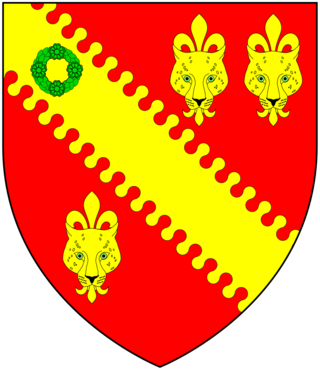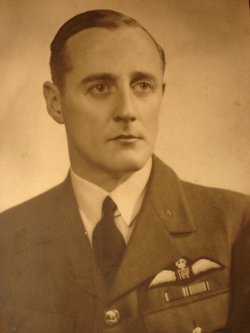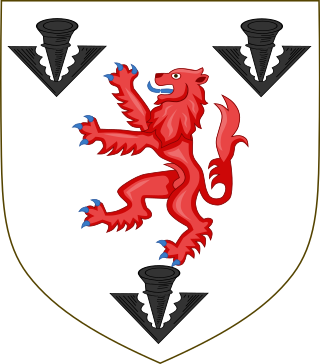Related Research Articles

Viscount Cobham is a title in the Peerage of Great Britain that was created in 1718. Owing to its special remainder, the title has passed through several families. Since 1889, it has been held by members of the Lyttelton family.

Earl of Lonsdale is a title that has been created twice in British history, firstly in the Peerage of Great Britain in 1784, and then in the Peerage of the United Kingdom in 1807, both times for members of the Lowther family.

Earl of Yarborough is a title in the Peerage of the United Kingdom. It was created in 1837 for Charles Anderson-Pelham, 2nd Baron Yarborough.

Earl of Verulam is a title in the Peerage of the United Kingdom. It was created in 1815 for James Grimston, 4th Viscount Grimston. He was made Viscount Grimston at the same time. Verulam had previously represented St Albans in the House of Commons. In 1808 he had also succeeded his maternal cousin as tenth Lord Forrester. He was succeeded by his son, the second Earl.

Viscount De L'Isle, of Penshurst in the County of Kent, is a title in the Peerage of the United Kingdom. It was created in 1956 for William Sidney, 6th Baron de L'Isle and Dudley, VC, KG, GCMG, GCVO (1909–1991).
Baron Denham, of Weston Underwood in the County of Buckingham, is a title in the Peerage of the United Kingdom. It was created in 1937 for Sir George Bowyer, 1st Baronet, a Conservative politician who had earlier represented Buckingham in the House of Commons. He had already been created a baronet, of Weston Underwood, in 1933. Bowyer was a great-great-great-grandson of Sir William Bowyer, 3rd Baronet, of Denham Court. As of 2017 the titles are held by his second but only surviving son, the 2nd Baron, who succeeded in 1948. In 1950 he also succeeded his distant relative in the Bowyer baronetcy, of Denham Court. Like his father, the 2nd Baron Denham was a Conservative politician and one of the ninety elected hereditary peers that remain in the House of Lords after the passing of the House of Lords Act 1999.

Baron Bicester, of Tusmore in the County of Oxford, is a title in the Peerage of the United Kingdom. It was created on 29 June 1938 for the banker Vivian Smith. As of 2018 the title is held by his great-grandson, the fifth Baron, who succeeded his first cousin once removed in 2016.

Baron Tennyson, of Aldworth in the County of Sussex and of Freshwater in the Isle of Wight, is a title in the Peerage of the United Kingdom. It was created in 1884 for the poet Alfred Tennyson. His son, the second Baron, served as Governor-General of Australia, and his grandson, the third Baron, as a captain for the English cricket team. On the death in 2006 of the latter's younger son, the fifth Baron, the line of the eldest son of the first Baron failed. The title was inherited by the late Baron's second cousin once removed, the sixth and present holder of the peerage. He is the great-grandson of Hon. Lionel Tennyson, second son of the first Baron.
Baron Revelstoke, of Membland in the County of Devon, is a title in the Peerage of the United Kingdom. It was created on 30 June 1885 for the businessman Edward Baring, head of the family firm of Barings Bank and a member of the Baring family. Baring was the son of Henry Baring, third son of Sir Francis Baring, 1st Baronet, and the nephew of Alexander Baring, 1st Baron Ashburton, the second cousin of Francis Baring, 1st Baron Northbrook, the elder brother of Evelyn Baring, 1st Earl of Cromer and the uncle of Evelyn Baring, 1st Baron Howick of Glendale. He was succeeded by his second but eldest surviving son John, the second Baron. John was a partner in Baring Brothers and Co. Ltd, a Director of the Bank of England, and also served as Lord Lieutenant of Middlesex. On his death the title passed to his younger brother Cecil, the third Baron. He acquired Lambay Island, north of Dublin, in 1904. As of 2017 the title is held by his great-grandson, the seventh Baron, who succeeded his father in 2012.

Baron Rankeillour, of Buxted in the County of Sussex, is a title in the Peerage of the United Kingdom. It was created in 1932 for the Conservative politician James Fitzalan Hope. He was the grandson of General Sir Alexander Hope, fourth son of John Hope, 2nd Earl of Hopetoun. His eldest son, Arthur Hope, was also a Conservative politician and held junior ministerial office. From 1940 to 1946 he served as Governor of Madras. He was succeeded by his younger brother, the third Baron, Henry John Hope. After the death of Henry John Hope's only son, Peter St Thomas More Hope in 2005,, who was unmarried, succession went to his first cousin, the fifth Baron, Michael Richard Hope, who is the present holder of the title, and is the eldest son of the Hon. Richard Frederick Hope, who was the youngest son of the first Baron.

Charles Seely was a 19th-century industrialist and British Liberal Party politician, who served as a Member of Parliament (MP) for Lincoln from 1847 to 1848 and again from 1861 to 1885. He was one of the wealthiest industrialists of the Victorian era. He was an enthusiastic supporter of the Lincoln Mechanics' Institute.
Sir Charles Hilton Seely, 2nd Baronet, VD, KGStJ was a British industrialist, landowner and Liberal Unionist politician who served as Member of Parliament (MP) for Lincoln from 1895 to 1906 and for Mansfield from 1916 to 1918. He was a Justice of the Peace for Hampshire and Nottinghamshire and the Deputy Lieutenant for Nottinghamshire. He was also a Knight of Grace of the Order of St John.

Hugh Michael Seely, 1st Baron Sherwood, known as Sir Hugh Seely, 3rd Baronet of Sherwood Lodge, Nottinghamshire, from 1926 to 1941, was a British Liberal politician.
Colonel Sir Charles Seely, 1st Baronet KGStJ, DL was a British industrialist and politician.
Captain David Peter Seely, 4th Baron Mottistone was a naval officer and British peer.
Baron Harvey of Tasburgh, of Tasburgh in the County of Norfolk, is a title in the Peerage of the United Kingdom. It was created on 3 July 1954 for the diplomat Sir Oliver Harvey on his retirement as British Ambassador to France. In November the same year he also succeeded his half-brother as fourth Baronet of Crown Point.
The Seely Baronetcy, of Sherwood Lodge in Arnold in the County of Nottingham and Brook House in Brooke on the Isle of Wight, is a title in the Baronetage of the United Kingdom. It was created on 19 February 1896 for the industrialist Charles Seely (1833–1915), son and namesake of Charles Seely (1803–1887). The first baronet's grandson, the third Baronet, was created Baron Sherwood, of Calverton in the County of Nottingham, in the Peerage of the United Kingdom in 1941. The peerage became extinct on his death, but he was succeeded in the baronetcy by his younger brother, the fourth Baronet. As of 2019, the title is held by the latter's grandson, the sixth baronet.
Arthur Patrick William Seely, 3rd Baron Mottistone, was a family Land Agent on the Isle of Wight and a British Liberal Party politician.

The Egerton family is a British aristocratic family. Over time, several members of the Egerton family were made Dukes, Earls, knights, baronets and peers. Hereditary titles held by the Egerton family include the dukedoms of Bridgewater (1720–1803) and Sutherland, as well as the earldoms of Bridgewater (1617–1829), Wilton (1801–1999) and Egerton (1897–1909). Several other members of the family have also risen to prominence. The Egerton family motto is Virtuti non armis fido.

Earl of Arran is a title in the Peerage of Ireland. It is not to be confused with the title Earl of Arran in the Peerage of Scotland. The two titles refer to different places: the Aran Islands in Ireland, and the Isle of Arran in Scotland. The Irish earldom is held by the Gore family. The Scottish earldom is a separate title, held as a subsidiary title of the Duke of Hamilton.
References
- Kidd, Charles, Williamson, David (editors). Debrett's Peerage and Baronetage (1990 edition). New York: St Martin's Press, 1990, [ page needed ]
- Leigh Rayment's Peerage Pages [ self-published source ][ better source needed ]
